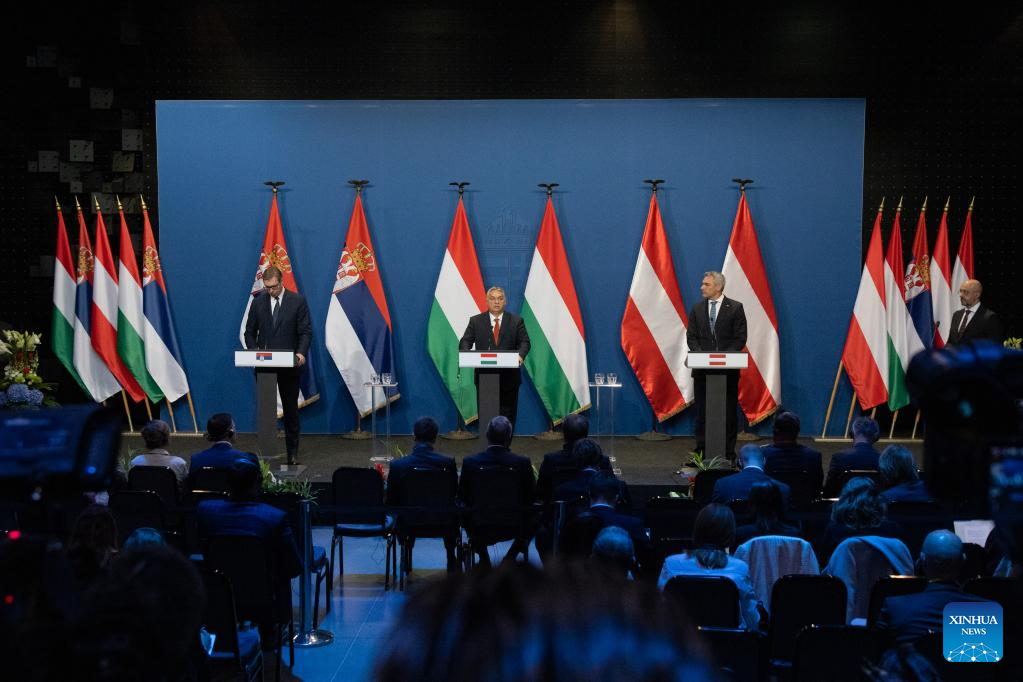
Hungary’s Prime Minister Viktor Orban (C), Serbian President Aleksandar Vucic (L) and Austrian Chancellor Karl Nehammer
BUDAPEST, Oct 4 (NNN-Xinhua) — The leaders of Hungary, Austria and Serbia discussed opportunities for closer cooperation against illegal migration during their summit meeting here on Monday.
“The situation regarding illegal migration is becoming more and more difficult, the numbers are becoming more and more alarming, yet not enough attention is being paid to this problem,” Hungary’s Prime Minister Viktor Orban said at a press conference held jointly with Austrian Chancellor Karl Nehammer and Serbian President Aleksandar Vucic.
Orban said that the conflict between Russia and Ukraine, and the resulting sanctions and energy price hikes, distracted attention from illegal migration, a problem that remains very much real.
He said that the reasons behind the migratory waves were still present, such as the welcoming legal environment of the European Union(EU), the global economic recession caused by the Russia-Ukraine conflict and inflation, as well as the global food shortage.
In order to fight illegal migration, Orban proposed three specific measures: push back further south the primary line of defense of the EU from the Hungary-Serbia border to the southern border of Serbia; repatriate the illegal migrants already present in the EU; and set up so-called hotspots outside the EU, where refugees could legally ask for asylum without entering the EU’s territory.
“In Serbia, 17,000 Ukrainians and Russians received temporary residence permits due to the conflict,” Vucic said, adding that most people in Serbia did not even know how difficult it was for border guards to deal with illegal migrants.
Nehammer said he welcomed the three countries’ cooperation.
“Austria has no EU external borders, yet it has already welcomed more than 70,000 migrants (from India, Pakistan, Afghanistan) and many refugees, who fled the Russian-Ukrainian conflict,” he said.
However, measures must be taken against illegal migration, which is why the cooperation of the three countries’ police forces is important, Nehammer said.
The leaders agreed to organize a second meeting in Belgrade where they would work out the legal details of their cooperation, with a follow-up meeting scheduled in Vienna. — NNN-XINHUA
